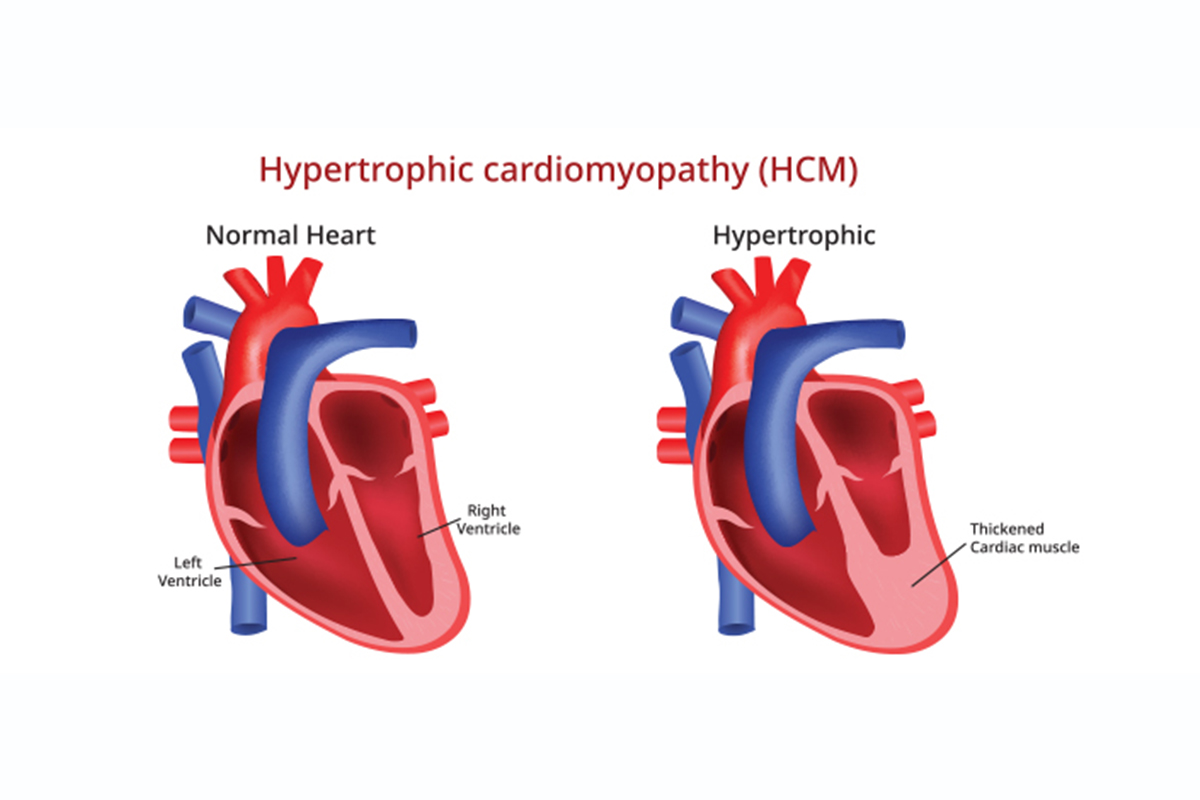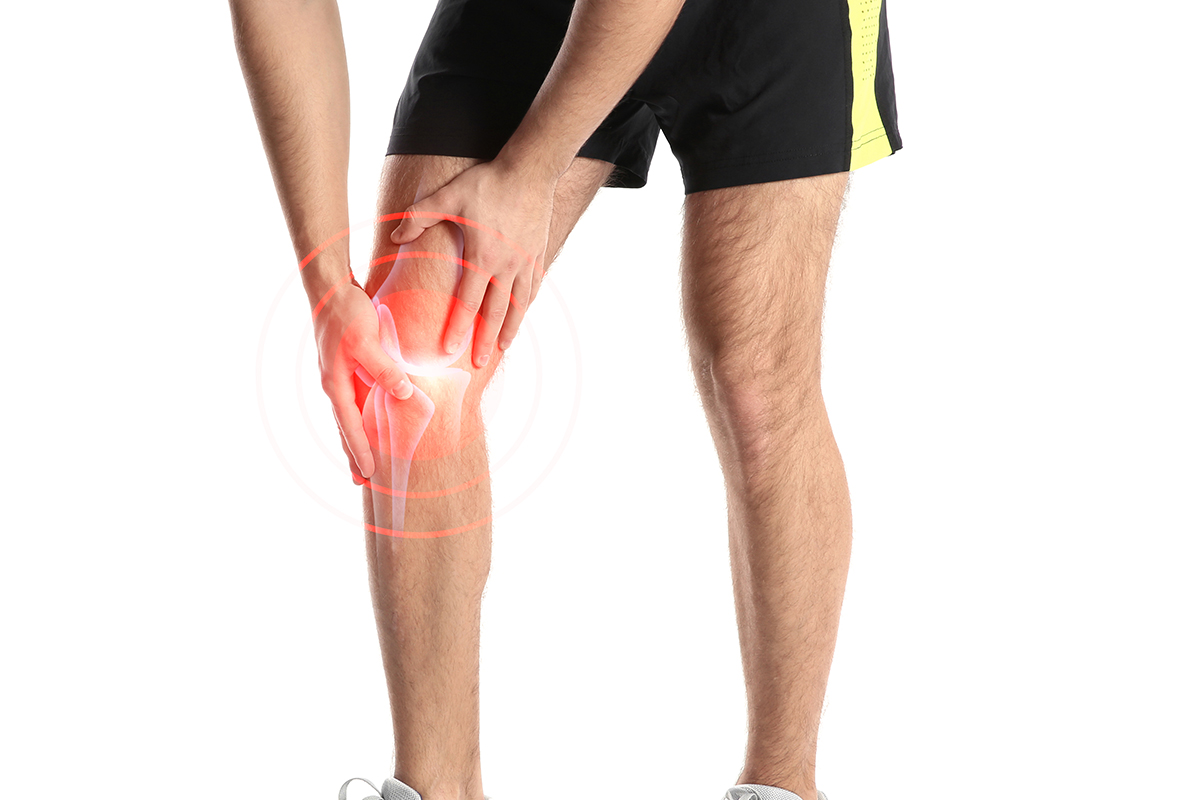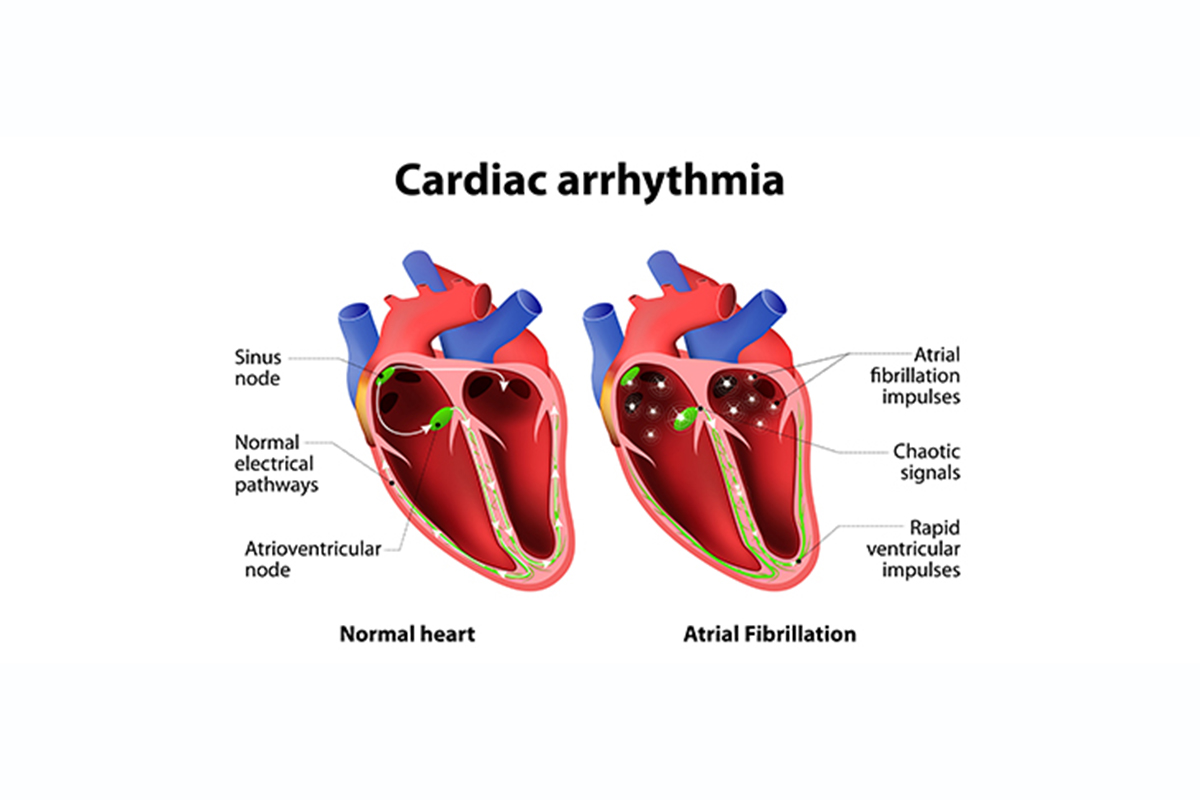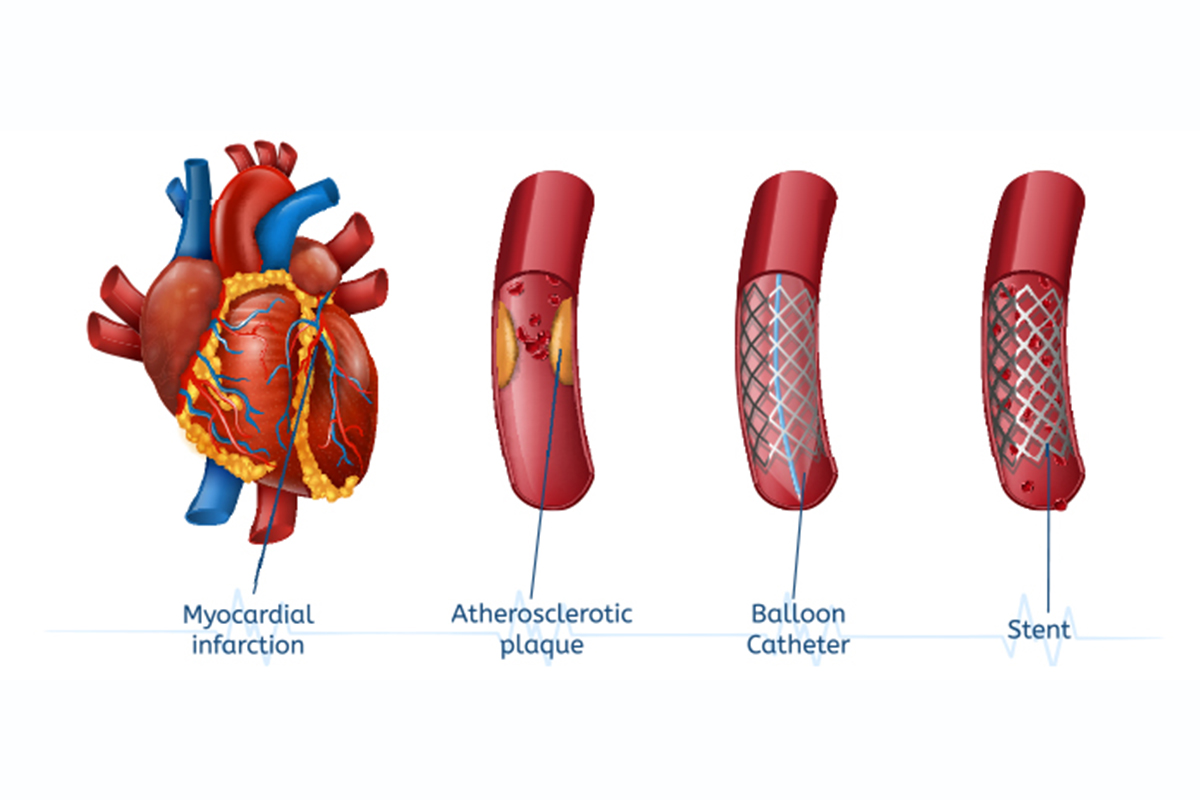
Hypertrophic Cardiomyopathy- A Disease That Makes Heart Muscles Thick
By Dr. Sameer Gupta in Cardiology
Sep 25, 2020
Hypertrophic Cardiomyopathy (HCM) is a disease which is characterized by abnormally thick heart muscles, a condition is medically known as hypertrophied. The thick muscle obstructs the flow of blood from the heart while also causing it to overexert while pumping.
Most people with Hypertrophic Cardiomyopathy can lead a normal life without any severe difficulty and it often goes undiagnosed. But over a period of time, it may lead to severe discomforts such as shortness of breath, chest pain or disruptions in the heart’s electrical system and can cause life-threatening arrhythmias or even sudden death.
Symptoms of Hypertrophic Cardiomyopathy
The mild symptoms of Hypertrophic Cardiomyopathy are often ignored considering them a result of normal weakness or tiredness etc. however, if not treated for a long time it may lead to severe complications. The common visible symptoms are
- Discomfort and Chest pain while doing physical activities
- Fainting during or post-exercise
- Heart murmur
- Palpitations or abnormal heartbeats
- Shortness of breath while doing physical activities
Health Risks Due to Hypertrophic Cardiomyopathy
It is a genetically inherited disease and if parents have the Hypertrophic Cardiomyopathy then there is a 50% probability of progeny suffering from the Hypertrophic cardiomyopathy.
So if anyone from your biological relations has Hypertrophic Cardiomyopathy then one should not take chances and should get themselves screened at the best cardiology hospital in Noida to avoid future health complications.
As stated before most people with Hypertrophic Cardiomyopathy (HCM) do not face any severe discomfort however, it can lead to:
- Atrial fibrillation: Irregular or fast heartbeats due to abnormal function of the heart’s electrical system. It also increases the risk of blood clots which can lead to stroke.
- Mitral valve problems. It may lead to abnormal function of the valve between the left atrium and left ventricle (mitral valve) which may not close properly. This can lead to backward blood flow into the left atrium (mitral valve regurgitation), which can cause severe heart problems.
- Blocked blood flow: Thickened heart muscle can cause obstruction or improper blood flow leading to a feeling of exertion, chest pain, nausea and shortness of breath.
- Dilated cardiomyopathy: The HCM may cause dilation of ventricle which in turn can reduce the pumping ability of heart leading to serious health complications.
- Heart failure: Thickened muscles make it difficult to pump sufficient oxygenated blood to the different parts of the body and eventually can lead to heart failure.
- Cardiac Arrest: Though it is rare, there are chances that hypertrophic cardiomyopathy can cause heart-related sudden death. Most people are not aware of HCM until it leads to other severe health complications, so may find seemingly healthy people succumbing to sudden cardiac deaths.
Prevention
As it is a hereditary disease, as such there is no prevention but if identified at early stages it is possible to treat and prevent further complications. Genetic testing is done to diagnose the HCM, however, if results are not clear then for deeper analysis periodic echocardiograms may be recommended.
When to see a doctor
The symptoms of hypertrophic cardiomyopathy may seem to be caused by daily activities such as indigestion, physical activity, stress etc. so if you have a family history of heart disease or hypertrophic cardiomyopathy you should consult the best Cardiologists at the Best Heart Hospital for early and accurate diagnosis and appropriate care.
Obstructive hypertrophic cardiomyopathy caused due to blockage of blood flow as a result of thickened heart muscles can lead to severe complications. In case the symptoms such as palpitations, chest pain, arrhythmia, or difficulty in breathing are observed on regular basis one should immediately consult a heart specialist.
Treatment of Hypertrophic Cardiomyopathy
The primary treatment is with medications. In some cases hypertrophic Cardiomyopathy patients may require aprocedure called Alcohol Septal Ablation – the procedure entails the insertion of a thin, flexible tube called a catheter through a blood vessel in your groin to the artery that carries blood to your septum. Then Alcohol is injected which causes thinning of the heart muscles and in turn, improves blood flow.
In some cases pateints with a thick septum, family history of suddenc cardiac death or with abnormal heart rhythms may require a specialized device called an AICD. This is sort of a specialized pacemaker that prevents death in patients with hypertrophic cardiomyopathy.
Alcohol Septal Ablation has been successfully performed by the renowned cardiologists at the Metro Group of Hospitals with a high success rate and minimal complications. The Metro Group of Hospital are renowned for its innovations in filed of cardiology that enables us to provide world-class heart care at a minimal cost.







